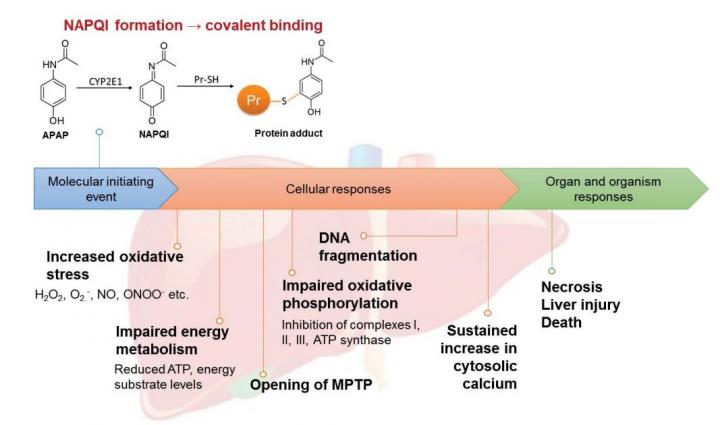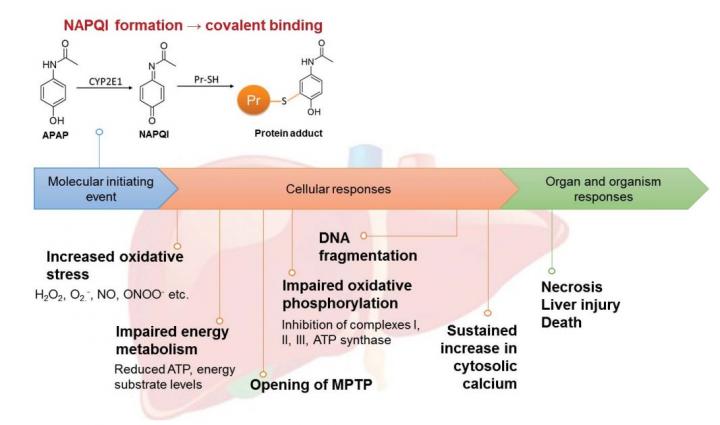
Credit: Chan et al., Molecular & Cellular Proteomics 2018
Acetaminophen is a common pain reliever found in every pharmacy. However, it is also the No. 1 cause of acute liver failure in the United States. In the liver, acetaminophen is converted into a new compound that covalently binds to proteins at an amino acid called cysteine. These covalent binding events are known to contribute to the toxicity of acetaminophen, but they cannot fully account for its role in liver failure. The compound is known to impair the activity of mitochondria, the cell's energy supplier, but does not bind directly to some of the enzymes in mitochondria whose activity it affects. Now researchers have found a new way that the breakdown product affects proteins in the liver.
James Chun Yip Chan and colleagues at the National University of Singapore examined glutathionylation, a post-translational modification made to cysteine residues, in response to acetaminophen toxicity. In a study published in the journal Molecular & Cellular Proteomics, the researchers reported a new proteomic approach to isolate and identify glutathionylated proteins and applied it in cells treated with acetaminophen. They found that an acetaminophen breakdown product can cause glutathionylation, suggesting a new mechanism for the damage the drug causes.
Usually, glutathione is added to cysteine residues to protect them from damage by oxygen under stressful conditions. Chan and colleagues showed that acetaminophen and its breakdown product activate glutathionylation in a dose-dependent way. The modification affects proteins involved in mitochondrial fuel uptake and energy production, leading to metabolic dysfunction and other effects linked to acetaminophen toxicity. This research helps explain the drug's toxicity at high doses, especially among enzymes that are impaired by acetaminophen treatment without binding directly to the drug or its metabolites. The findings may also apply to other drugs with similar structures.
###
DOI: 10.1074/mcp.RA118.000875
Other authors on the study included Alex Cheow Khoon Soh, Dorinda Yan Qin Kioh, Jianguo Li, Chandra Verma, Siew Kwan Koh, Roger Wilmer Beuerman, Lei Zhou and Eric Chun Yong Chan.
Kerri Beth Slaughter contributed to this research summary.
Molecular & Cellular Proteomics (MCP) showcases research into proteomes, large-scale sets of proteins from different organisms or biological contexts. The journal publishes work that describes the structural and functional properties of proteins and their expression, particularly with respect to developmental time courses. Emphasis is placed on determining how the presence or absence of proteins affect biological responses, and how the interaction of proteins with their cellular partners influences their functions. For more information about MCP, visit http://www.mcponline.org.
Media Contact
Laurel Oldach
[email protected]
240-283-6648
@asbmb
http://www.asbmb.org
Related Journal Article
http://dx.doi.org/10.1074/mcp.RA118.000875





